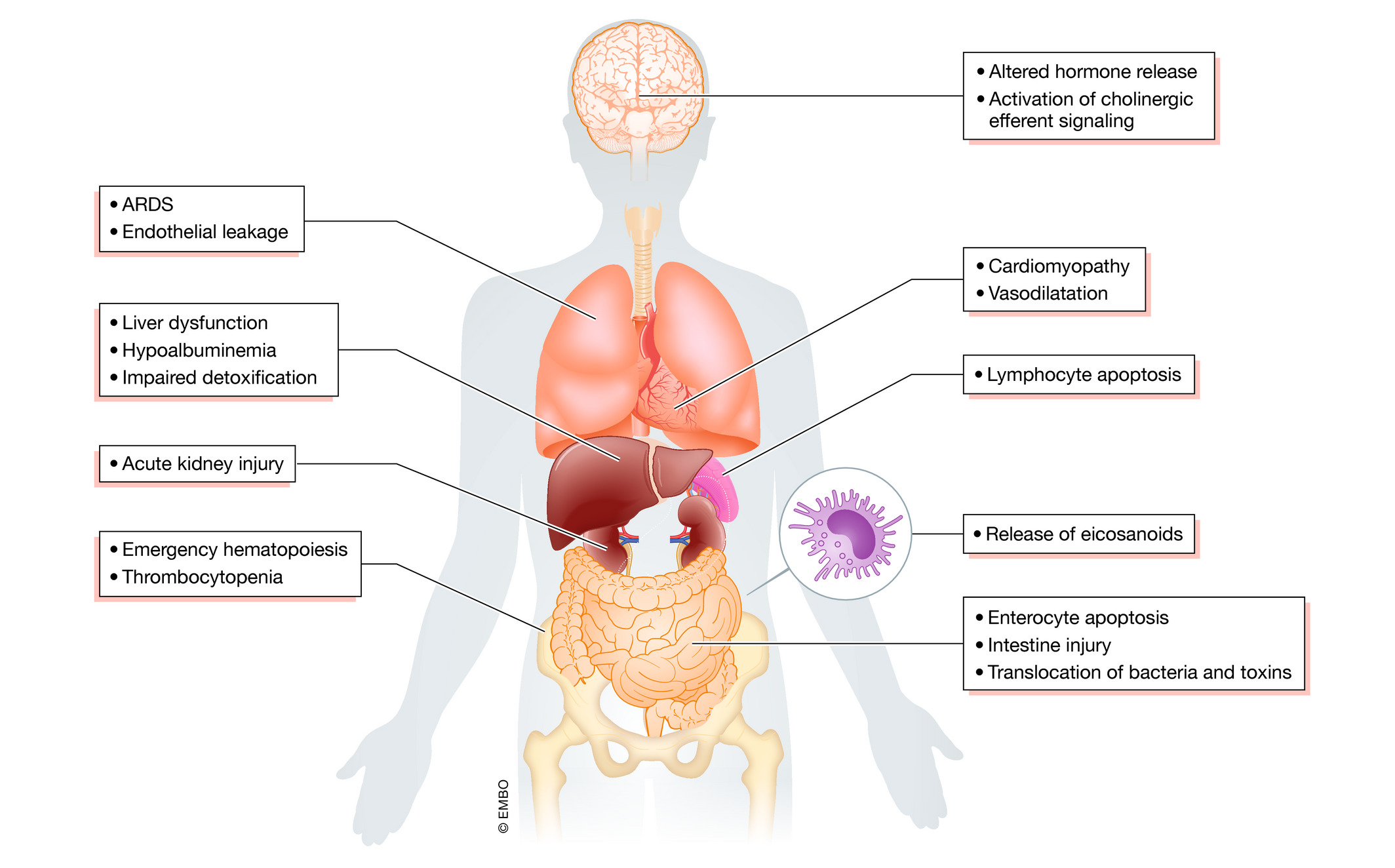Three decades of sepsis research resulted in major progress in understanding the underlying pathophysiology. However, these successes have been thwarted by failing translation to sepsis therapies. J-M. Cavaillon and colleagues recently provided a comprehensive review on current knowledge, lessons learned from failing trials and novel approaches.
Cavaillon J-M, Singer M, Skirecki T Sepsis therapies: learning from 30 years of failure of translational research to propose new leads. EMBO Mol Med: e10128
Abstract
Sepsis has been identified by the World Health Organization (WHO) as a global health priority. There has been a tremendous effort to decipher underlying mechanisms responsible for organ failure and death, and to develop new treatments. Despite saving thousands of animals over the last three decades in multiple preclinical studies, no new effective drug has emerged that has clearly improved patient outcomes. In the present review, we analyze the reasons for this failure, focusing on the inclusion of inappropriate patients and the use of irrelevant animal models. We advocate against repeating the same mistakes and propose changes to the research paradigm. We discuss the long‐term consequences of surviving sepsis and, finally, list some putative approaches—both old and new—that could help save lives and improve survivorship.








